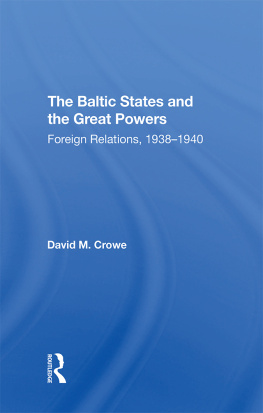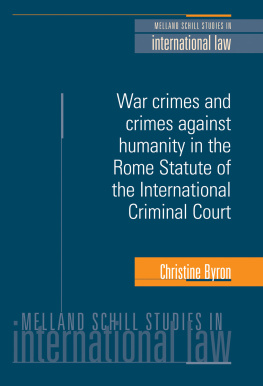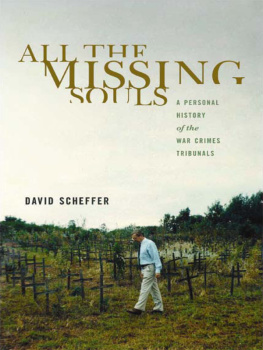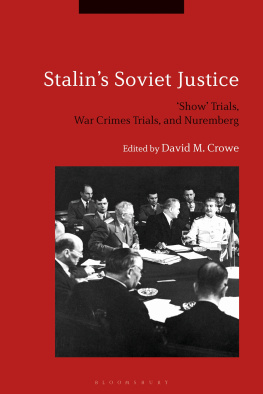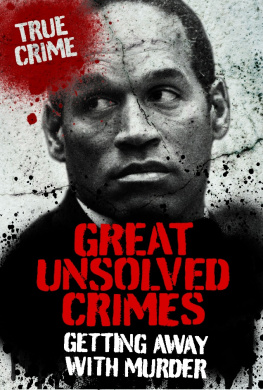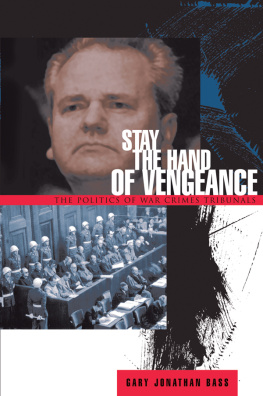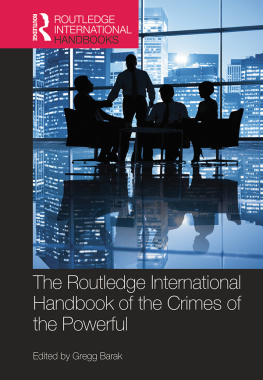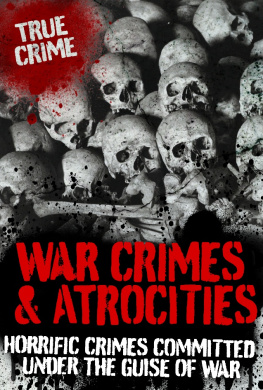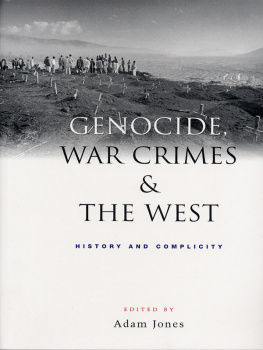Crimes of State Past and Present
War Crimes and acts of genocide are as old as history itself, but particularly during the 20th century. Yet what are war crimes and acts of genocide? And why did it take the world so long to define these crimes and develop legal institutions to bring to justice individuals and nations responsible such crimes? Part of the answer lies in the nature of the major wars fought in the 20th century and in the changing nature of warfare itself.
This study, which begins with a discussion of the history of war crimes and international criminal law, also discusses war crimes committed during the Second World War in the USSR, Yugoslavia, Germany, and efforts to bring the perpetrators to justice. This led to successful postwar efforts to define and outlaw such crimes and, more recently, the creation of two international courts to bring war criminals to justice. This did not prevent the commitment of war crimes and acts of genocide throughout the world, particularly in Asia and Africa. And while efforts to bring war criminals to justice has been enhanced by the work of these courts, the problems associated with civil wars, command responsibility, and other issues have created new challenges for the international legal community in terms of the successful adjudication of such crimes.
This book was based on a special issue of Nationalities Papers.
David M. Crowe is a professor of History at Elon University and a Professor of Legal History at Elon Universitys School of Law. He is President Emeritus of the Association for the Study of Nationalities at Columbia where he has also served as a Visiting Scholar. He has taught at Central European University and has been a Fellow at the Center for Slavic, Eurasia, and East European Center at the University of North Carolina at Chapel Hill. He has also been a member of the Education Committee of the United States Holocaust Memorial Museum in Washington, D.C. and has served as chair of the North Carolina Council on the Holocaust. He has testified before the United States Congress Commission on Security and Cooperation in Europe and the New York City Councils Subcommittee on Immigration. He currently serves on the Editorial Boards of Nationalities Papers, Ethnopolitics, and First World War Studies.
The Association for the Study of Nationalities
www.nationalities.org
Edited by
Karl Cordell, University of Plymouth
Florian Bieber, University of Kent, Canterbury
Stefan Wolff, University of Nottingham
The books in this series focus on the dynamics and interactions of significant minority and majority nationalisms in the context of globalisation and their social, political and economic causes and consequences. Each book is focused on an important topic drawn from the rigorously peer-reviewed articles published in Nationalities Papers and Ethnopolitics, and includes authoritative theoretical reflection and empirical analysis by some of the most widely recognized experts in the world.
Nationalities Papers
Conflict in South-Eastern Europe at the End of the Twentieth Century
A Scholars Initiative assesses some of the controversies
Edited by Thomas Emmert and Charles Ingrao
Identities, Nations and Politics After Communism
Edited by Roger E. Kanet
Crimes of State Past and Present
Government-Sponsored Atrocities and International legal Responses
Edited by David M. Crowe
Ethnopolitics
Gambling on Humanitarian Intervention
Edited by Timothy W. Crawford and Alan J. Kuperman
Ethnopolitics of Elections
Edited by Florian Bieber and Stefan Wolff
Internationalized State-building after Violent Conflict
Bosnia Ten Years after Dayton
Edited by Marc Weller and Stefan Wolff
Governance in Ethnically Mixed Cities
Edited by Sherrill Stroschein
Transnationalism in the Balkans
Edited by Denisa Kostovicova and Vesna Bojicic-Dzelilovic
Cultural Autonomy in Contemporary Europe
Edited by David J. Smith and Karl Cordell
EU Conflict Management
Edited by James Hughes
First published 2011
by Routledge
2 Park Square, Milton Park, Abingdon, Oxon, OX14 4RN
Simultaneously published in the USA and Canada
by Routledge
270 Madison Avenue, New York, NY 10016
Routledge is an imprint of the Taylor & Francis Group, an informa business
2011 Association for the Study of Nationalities
This book is a reproduction of Nationalities Papers, vol. 37, issue 6. The Publisher requests to those authors who may be citing this book to state, also, the bibliographical details of the special issue on which the book was based
Typeset in Times New Roman by Value Chain, India
All rights reserved. No part of this book may be reprinted or reproduced or utilised in any form or by any electronic, mechanical, or other means, now known or hereafter invented, including photocopying and recording, or in any information storage or retrieval system, without permission in writing from the publishers.
British Library Cataloguing in Publication Data
A catalogue record for this book is available from the British Library
ISBN13: 978-0-415-57788-5
David M. Crowe
Some of the most horrific war crimes and acts of genocide took place during the twentieth century. Though such crimes are as old as history itself, they were not defined legally until the nineteenth and twentieth centuries. The term genocide was coined and defined by a brilliant Polish Jewish legal scholar, Raphael Lemkin, who fled Poland during the early days of World War II. Lemkin, who had struggled for years to develop better legal definitions for some of historys worst war crimes, coined and defined genocide in his seminal work, Axis Rule in Occupied Europe (1944). He later played a key role in the creation of the 1948 Genocide Convention. This accord, in league with earlier conventions and the legal precedents established during the International Military Tribunal trials in Nrnberg and Tokyo after World War II, paved the way for the gradual emergence of a new body of international criminal and humanitarian laws that helps guide efforts by international judicial bodies such the International Court of Justice and the International Criminal Court to bring perpetrators of various international crimes to justice, whether they be states or individuals.
The essays in this collection bring to life many of the questions and issues surrounding not only some of the worst war crimes and acts of genocide in the twentieth century, but also the broader history of these crimes and legal responses historically. The introductory essay highlights the history of such crimes dating back to antiquity. While one would presume that crimes of war reflect a certain level (or lack thereof) of culture and societal sophistication, some of antiquitys greatest civilizations, whether in the Near East, Asia, or the West, committed horrible atrocities during and after military campaigns. Such practices continued well beyond this era, though there began to be hints, particularly in Europe, of efforts to curb such excesses.




